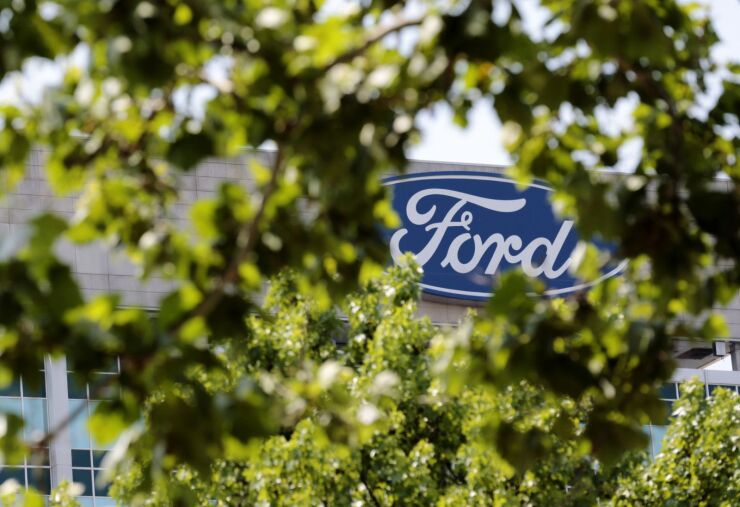Ford Motor is delaying employees’ return to the office for a second time due to the worsening spread of Covid-19, weighing a broader vaccine mandate and expanding remote work for salaried staff.
Ford has moved the return to January, 2022, from October, 2021.
Originally, the automaker planned to bring staffers back in July in a “flexible hybrid” system that let them work from home and only come in for meetings and team-building activities. After a spring Covid surge, Ford delayed that to October, and now with the delta variant spreading the automaker says “no earlier than January 2022.”
Read More:
“We didn’t feel comfortable bringing them back based on the Covid data we see today,” Kiersten Robinson, Ford’s human resources chief, told Bloomberg.
The persistence of the virus is forcing Ford to assess work practices frequently. It’s now weighing a vaccine requirement beyond one instituted for workers who travel internationally, Robinson said. So far there’s no timeline for a decision, and any move affecting hourly workers would require discussions with the United Auto Workers union.
“We’re collecting feedback from employees around why they would or would not get vaccinated,” Robinson said.
Read More:
Ford joins Amazon.com, Apple, and Facebook in pushing a planned return to office into next year. And it’s adding to that decision by allowing “non-site-dependent” employees to work remotely from anywhere in their country of employment for up to 30 days a year.
That means someone can spend a month in Florida in the winter or at a Northern Michigan lake home in the summer “with no expectation to work on-site at a Ford facility,” the company said of the new policy, which is already offered by some tech companies.
With stepped up investments in electric and self-driving car technology, Ford now competes for tech talent with Silicon Valley and has offered some of the most flexible post-pandemic work options among industrial companies.
Read More:
But the new policy sharpens the divide between white- and blue-collar workers, who are required to be on-site and this month had to resume wearing masks in factories. The idea of white-collar employees logging on safely at home, while lower-paid employees risk their health to show up in person, has been an added source of resentment in an already stratified U.S. economy.
In a survey last summer, 95% of Ford’s global nonproduction staff said they wanted to maintain a mix of home and office work after the pandemic. The Dearborn, Michigan-based company has about 182,000 employees, including about 18,000 North American salaried staff who are currently working from home.
Ford is reorienting its offices to accommodate the flexible-hybrid model, no longer assigning specific desks to individuals, and is instead instituting a reservation policy for workspaces when meetings or other group work is required.
Read More:
Before it sent employees home last year when the coronavirus caused global lockdowns, Ford had begun a multiyear, multimillion-dollar overhaul of its Dearborn headquarters to make the campus more open and modern.
The company also acquired a crumbling, century-old train station in downtown Detroit that it’s converting to a mixed-use hub for creating the cars of the future.
Ford remains committed to both of those projects, but is modifying how the work spaces will be used to focus more on flexibility and collaboration, Robinson said.
Read More:
“We may reduce the number of buildings and consolidate our footprint,” Robinson said. But “both of those efforts are strategically very important to us and critical in creating that modern, flexible workplace experience and attracting new and different types of talent.”






